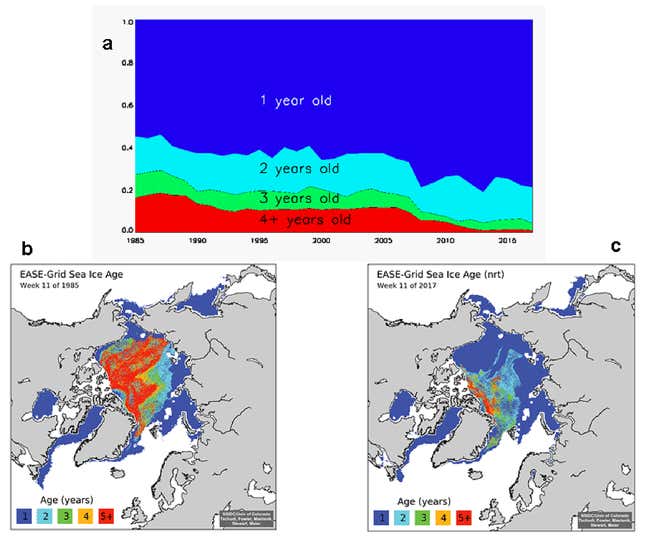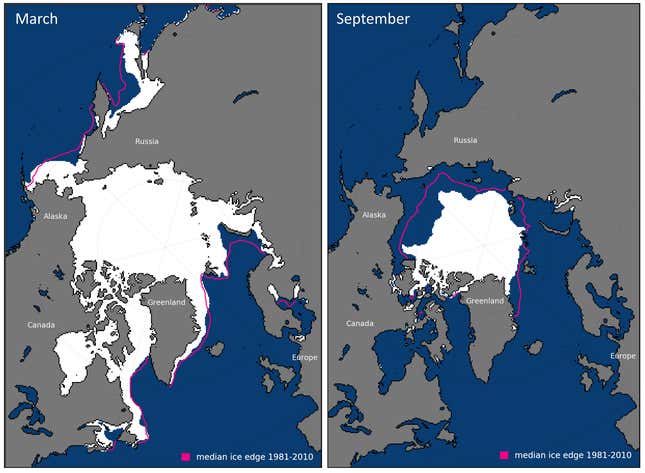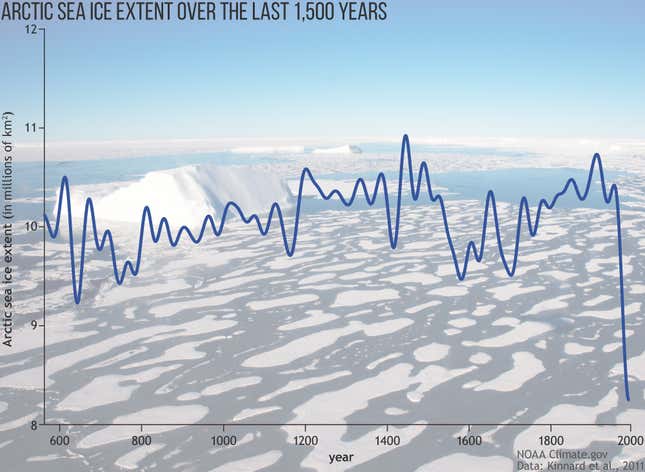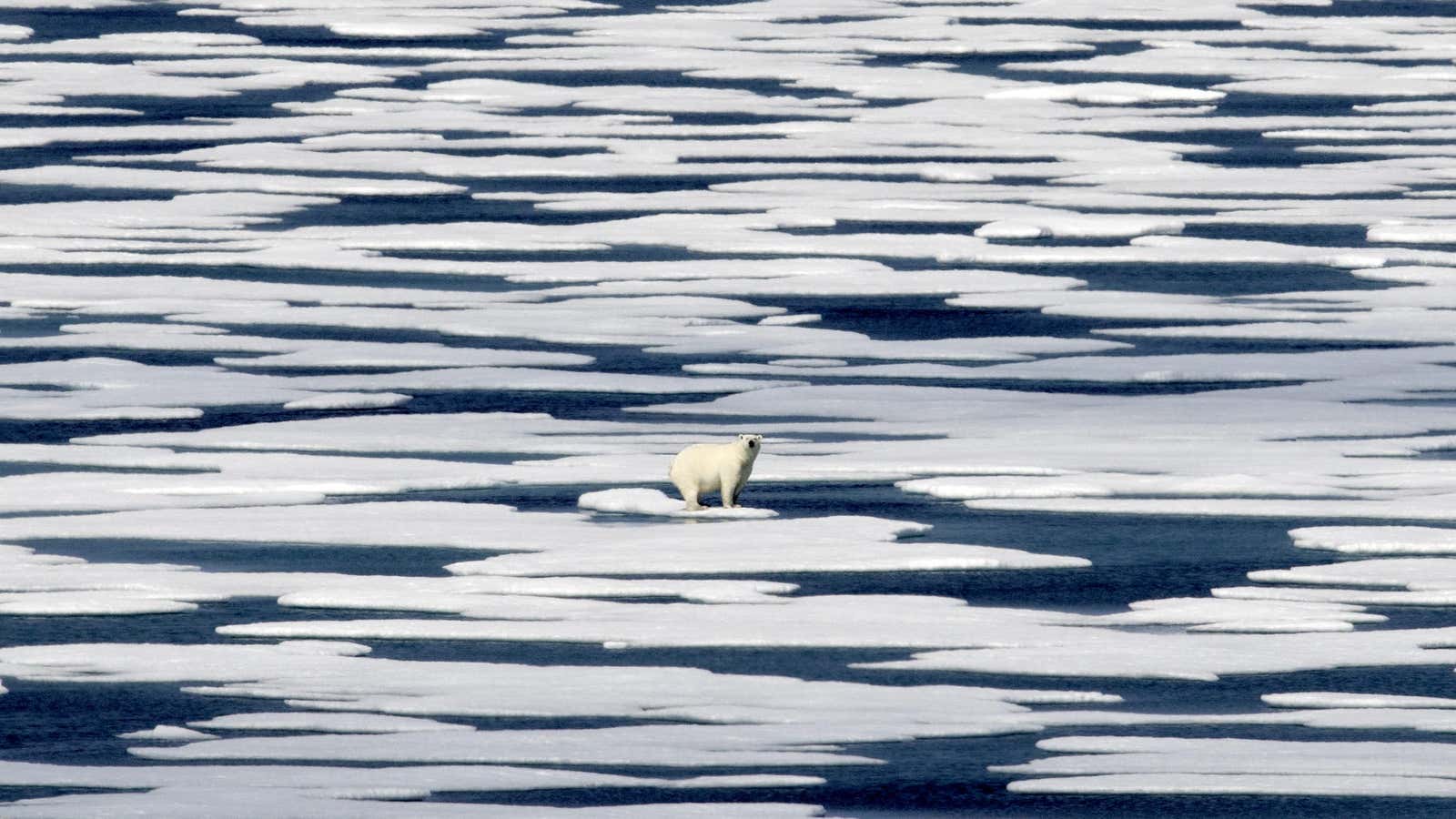The Arctic’s report card is in, and it’s getting a failing grade in freezing.
“Arctic shows no sign of returning to reliably frozen region of recent past decades,” the National Oceanic and Atmospheric Administration (NOAA) stated in its 2017 report card on the health of the region, published Tuesday (Dec 13). The agency, which has published the peer-reviewed report annually for the past 12 years, this year included input from 85 scientists from 12 countries. They found that the current pace of loss for Arctic sea ice is unprecedented in the past 1,500 years.
That matters: One of the most important measures of climate change in the Arctic is how much “old ice”—thick, stable ice that manages to stay frozen over the summer months for at least four consecutive years—is left there. “As sea ice ages, it adds volume, expels salt, and is toughened up by jostling and collisions,” NOAA wrote. “These characteristics make it better able to withstand warm weather and pounding from storm waves; its loss makes for a more fragile ice pack.”
“Old ice” comprised 20% of the Arctic ice pack in 1985. Now, “sea ice more than 4 years old has nearly disappeared,” the researchers wrote.

Ice that can survive even one summer season is becoming scarce. Thicker ice more than one year old comprised 45% of the Arctic ice pack in 1985; in 2017, it was just 21%. Likewise, the overall winter maximum ice extent in March 2017 (which includes new ice only formed that year) was the lowest on record, according to NOAA.

“Arctic paleo-reconstructions, which extend back millions of years, indicate that the magnitude and pace of the 21st century sea-ice decline and surface ocean warming is unprecedented in at least the last 1,500 years and likely much longer,” the report reads.

